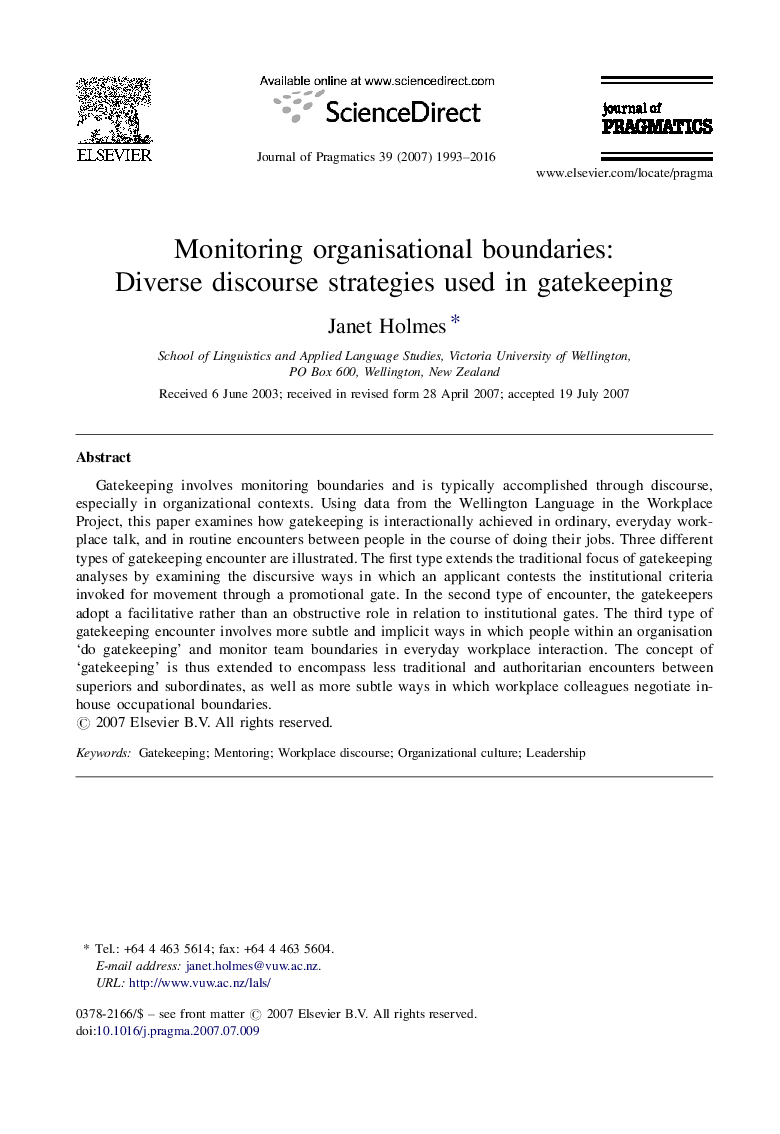| Article ID | Journal | Published Year | Pages | File Type |
|---|---|---|---|---|
| 934123 | Journal of Pragmatics | 2016 | 24 Pages |
Gatekeeping involves monitoring boundaries and is typically accomplished through discourse, especially in organizational contexts. Using data from the Wellington Language in the Workplace Project, this paper examines how gatekeeping is interactionally achieved in ordinary, everyday workplace talk, and in routine encounters between people in the course of doing their jobs. Three different types of gatekeeping encounter are illustrated. The first type extends the traditional focus of gatekeeping analyses by examining the discursive ways in which an applicant contests the institutional criteria invoked for movement through a promotional gate. In the second type of encounter, the gatekeepers adopt a facilitative rather than an obstructive role in relation to institutional gates. The third type of gatekeeping encounter involves more subtle and implicit ways in which people within an organisation ‘do gatekeeping’ and monitor team boundaries in everyday workplace interaction. The concept of ‘gatekeeping’ is thus extended to encompass less traditional and authoritarian encounters between superiors and subordinates, as well as more subtle ways in which workplace colleagues negotiate in-house occupational boundaries.
